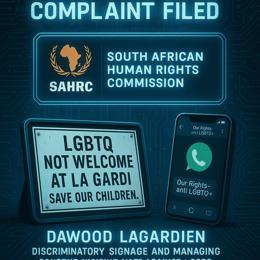Image created by AI
Crisis in Cabo Delgado: Mozambique's Displaced Population Faces Uncertain Future
Mozambique's northern province of Cabo Delgado has been the epicenter of an escalating humanitarian crisis, triggered by an increasingly violent insurgency that has been terrorizing the region since 2017. The conflict has led to a harrowing displacement of over one million people, creating a severe strain on the region’s already limited resources and infrastructure.
Pemba, the provincial capital, has witnessed its population nearly double, with current figures estimating about 132,000 internally displaced persons (IDPs) within its confines. At the height of the insurgency in March 2022, these numbers reached an alarming 152,000. This sudden surge has placed an incredible strain on the most basic of public services, including housing, health, and education, while also presenting new conflicts over the city's scant resources.
Much like the haunting echoes of Mozambique’s 1976-92 civil war, the current situation speaks to the nation’s grim history with displacement and conflict. Despite such a past, the Mozambican government has yet to present a coherent strategy for supporting the IDPs dotting the entire country. Consequently, international humanitarian organizations, like the United Nations, have had to step in to shoulder the responsibilities of providing essential services to the displaced masses.
IDPs face an array of challenges, from limited access to necessities like food and water to increased risks of disease, gender-based violence, and the gripping tentacles of unemployment. The social fabric of Pemba is fraying, as evidenced by rising numbers of unemployed youth, street children, and elderly, along with a struggling demographic of girls and young women forced into sex work for survival.
International efforts, such as the Strong Cities Network workshop in Tanzania, have highlighted the urgent need for coordinated actions to address the underlying conditions of displacement and to inspire resilience against polarization, hate, and extremism. The key to preventative measures lies in the empowerment of IDPs through vocational training tailored to the job market's current demands, as demonstrated by successful initiatives like Kenya's Swahilipot Hub.
However, not all training programs have been as successful in aligning with the labor demands, as seen in Pemba. Programs funded by international entities like TotalEnergies face criticism for not being market-oriented or inclusive enough of the most vulnerable populations. Despite training thousands, these initiatives have not translated into gainful employment, leaving many skilled but jobless graduates.
The situation in Cabo Delgado deteriorated further in May, following attacks on humanitarian agencies in Macomia by insurgents. The desecration led to the looting of crucial food supplies and the kidnapping of aid workers, triggering the World Food Programme (WFP) to suspend its activities in the region. Such setbacks highlight the precariousness of relying solely on humanitarian agencies for managing the IDP crisis, particularly when faced with violence or funding shortfalls.
For the IDPs in Cabo Delgado, these dire circumstances are exacerbated by the dwindling international support. WFP food assistance has decreased sharply, with only about 136,371 people receiving aid as of May, down from the 750,000 supported during the November-December 2023 cycle. The looming funding gap presages an uncertain future for aid operations in northern Mozambique, with a forecasted shortfall of 76% hampering WFP's efforts for the year 2024.
The IDP management conundrum in Mozambique calls for a governmental reassessment. It's a sharp reminder that addressing the needs of the displaced is an intrinsic government role that necessitates thoughtful study, adequate resourcing, and comprehensive solutions. Delegating this responsibility solely to humanitarian organizations is neither sustainable nor prudent, especially given the fragile nature of their operations.
The Mozambique government faces a critical crossroad. It has the opportunity to glean important lessons from other African countries beset by long-standing conflicts and displacement. Only through a firm political will and coordinated action can the nation tackle the pressing needs of its IDP population, fostering their integration and buffering them against the tides of extremism.










